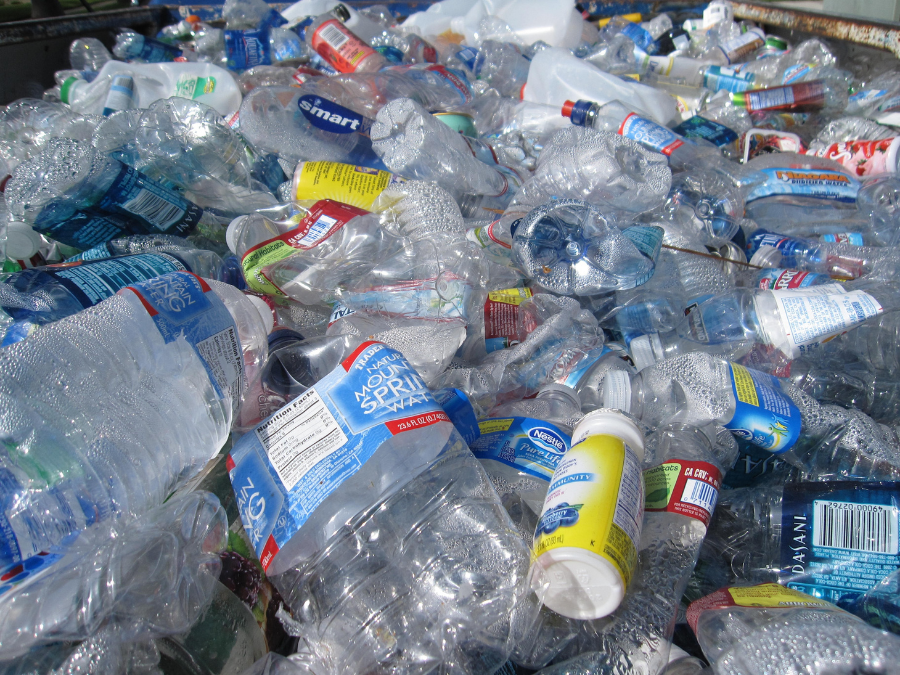
The use of returnable packaging in the food, beverage and personal-care sectors could cut the emissions generated by single-use plastic by more than two-thirds, a study has suggested.
UK-based charity The Ellen MacArthur Foundation (EMF) said GHG emissions could be reduced by 35% to 69% depending on the product type if there is a major shift in the way companies work together on packaging.
The EMF set out a “system change” scenario that would see brands pool infrastructure and packaging. Under that model, some 95% of the packaging is returned, allowing the packs to be used around 15 times.
Published today (22 November), the EMF study suggests “water and material use” would be cut “by 45% to 70% and 45% to 76% respectively”.
The report said: “These benefits are achieved in a plastic, single-use packaging to plastic returnable packaging comparison but are dependent upon application and scale. For example, the top range would be achieved in large-scale reuse systems – circa 40% of the market for that application – with high return rates and highly optimised transport.”
For returnable packaging to work at scale and be a viable economic option, the EMF said manufacturers will have to scale and share infrastructure together. To achieve scale, collecting, cleaning, sorting and transportation need to be combined.
Access the most comprehensive Company Profiles
on the market, powered by GlobalData. Save hours of research. Gain competitive edge.

Company Profile – free
sample
Your download email will arrive shortly
We are confident about the
unique
quality of our Company Profiles. However, we want you to make the most
beneficial
decision for your business, so we offer a free sample that you can download by
submitting the below form
By GlobalData
To aid sorting and general efficiency, packaging should be standardised, leaving only labels and closures as the differentiating markers of brands, the report said.
High return rates by the consumer must also be achieved and companies’ efforts should focus on making the collecting process a “frictionless” customer experience.
“Having to separate packaging and interact with multiple collection streams could be a barrier for customers,” the report noted.
In the EMF’s “system change” scenario, which is the most “ambitious” and would see widescale collaboration across industry and government, the EMF said the cost of a returnable beverage bottle would be 28% lower per unit compare to single-use bottles.
“Scaling reuse will be a major transition and won’t happen overnight,” Sander Defruyt, plastics initiative lead at the EMF, said. “We now need to see more research and groundwork to make return models at scale a reality.
“No single organisation can drive the necessary change by itself; it will require a collaborative effort from businesses, policymakers and financial institutions. Together they can kick start the reuse revolution and get the world on track to tackling the plastic crisis.”
The study was conducted in partnership with sustainability firms Systemiq and Eunomia, as well as Nestlé, The Coca-Cola Co., Amazon, Mars and Danone.
In November, the EMF noted that several FMCG companies were behind on sustainable plastic targets for 2025.
Regressing companies include Mars, which increased its use of virgin plastic by 14% in 2022 compared to 2019, and PepsiCo, which used 10% more in 2022 compared to 2020. Coca-Cola used 8% more virgin plastic packaging in 2022 compared to 2019.
This month, the state of New York sued PepsiCo over the alleged impact the food and drink major’s packaging is having on the environment and public health in the Buffalo region.
New York State Attorney General Letitia James has brought the case against PepsiCo alleging the Pepsi Max and Lay’s brands owner is “jeopardising the environment and public health” due to the high levels of single-use plastics it produces.

